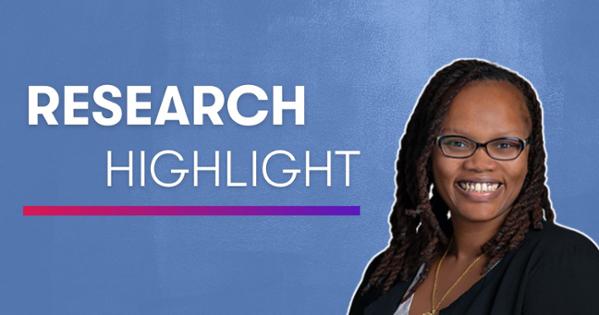How are Ethiopian Diaspora Communities in Virginia Engaging in Political Participation?

While foreign policy can be an important factor for voters in national elections, it isn’t often top of mind for local or state-wide elections. However, for Ethiopian diaspora communities in Virginia, the Biden administration’s response to the brutal conflict in the Tigray region in Ethiopia was disappointing and spurred mobilization and support for Republican candidate Glenn Youngkin in the 2021 gubernatorial election. Dissatisfaction with the Democratic Party leadership over the war in Ethiopia led to months of lobbying and organizing on behalf of Youngkin, helping him win the election.
SIS Professor Claudine Kuradusenge-McLeod’s new research article in Diaspora explores how and why Ethiopian diaspora communities in Virginia mobilized to impact the 2021 governor’s race. To learn more, we asked Kuradusenge-McLeod some questions about her research methodology, key takeaways from the article, and what’s next for her research.
- What made you decide to focus your research on the political participation of Ethiopians in Virginia?
- I've been interested in diaspora communities for over 15 years. Over the past ten years, my research has focused on social and political participation, and I’ve included a chapter on this topic in my book. As a Virginia resident, I found the election of Youngkin particularly surprising, which led me to start asking questions. In the course of various conversations, I began hearing about Ethiopian lobbying and mobilization efforts.
- What methodology did you utilize for this research?
- Given the atrocities in Ethiopia, I felt it was essential to examine the Ethiopian community from two distinct perspectives. First, I focused on their social media campaigns, which they utilized to lobby representatives and raise awareness about the conflict in the Tigray region. I was also interested in hearing directly from community members. While they are predominantly Democrats, many voted for a Republican. With this in mind, I decided that Narrative Inquiry was the most fitting methodology.
- What were the key takeaways from this study?
- The Ethiopian communities were disappointed with the Biden administration and the US media's portrayal of the conflict. They felt that their concerns were neither taken seriously nor heard. Many participants also expressed a desire for Democrats to refrain from interfering with Abiy's government. For them, the Tigray People’s Liberation Front (TPLF) is a terrorist group, and they questioned why the US was urging Abiy to negotiate with a group it considers a terrorist organization.
- What do the results of the study say about the impact of foreign policy on domestic institutions, especially in terms of immigrant communities?
- We need to recognize that domestic and foreign policies are interconnected, especially for diaspora communities. This was evident in the case of Palestinian and other Middle Eastern communities during the 2024 election. For many, there are tensions between the political agendas of their host country and their homeland, often at the expense of the host country’s interests.
- Did your findings with this research lead you to any new research questions? What’s next for your research?
- Yes, it opened a Pandora's box. I am interested in researching diaspora voting trends during the 2024 elections, as well as the impact of the atrocities in Gaza on American political discourse.